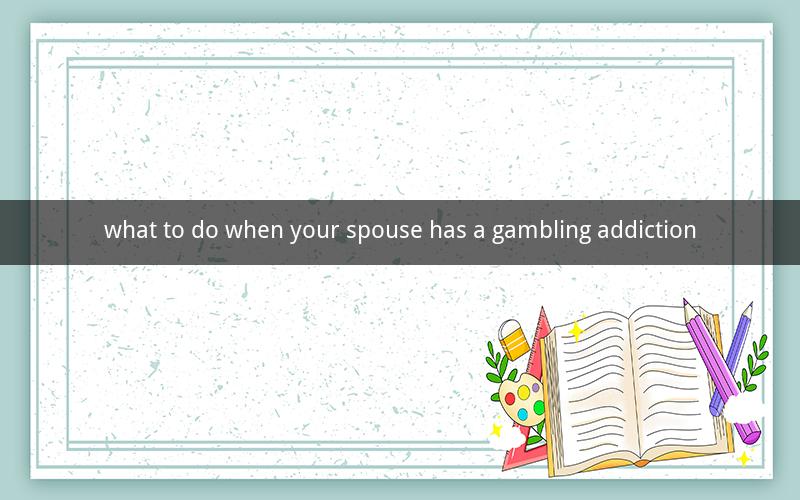
Table of Contents
1. Understanding the Problem
2. Recognizing the Signs
3. The Impact on Relationships
4. Communicating with Your Spouse
5. Encouraging Change
6. Seeking Professional Help
7. Support Systems
8. Financial Management
9. Coping with Emotional Challenges
10. Rebuilding Trust
1. Understanding the Problem
When your spouse has a gambling addiction, it can be an overwhelming and challenging situation to navigate. Understanding what gambling addiction is and how it affects individuals and relationships is the first step in finding a path forward.
Gambling addiction, also known as compulsive gambling, is a progressive disorder that affects the brain's reward system. It is characterized by an inability to control the urge to gamble, despite negative consequences. This addiction can lead to financial, emotional, and relational problems, making it crucial to address the issue promptly.
2. Recognizing the Signs
Identifying the signs of a gambling addiction is essential in determining whether your spouse's behavior is a cause for concern. Common signs include:
- Hiding gambling activities
- Borrowing money to fund gambling habits
- Lying about gambling
- Neglecting responsibilities
- Increased secrecy and isolation
- Financial strain
- Emotional distress
3. The Impact on Relationships
Gambling addiction can have a devastating impact on relationships, including marriage. It is important to understand the effects of this addiction on your relationship:
- Emotional distance
- Financial strain
- Trust issues
- Communication breakdown
- Infidelity
4. Communicating with Your Spouse
Opening up a dialogue with your spouse about their gambling addiction is a delicate but necessary step. Here are some tips for effective communication:
- Choose a suitable time and place for the conversation
- Express your concerns without judgment or anger
- Use "I" statements to avoid sounding accusatory
- Be prepared to listen actively
- Offer support and encouragement
5. Encouraging Change
Encouraging your spouse to seek help and make positive changes is crucial. Here are some strategies:
- Encourage them to seek professional help
- Provide information about treatment options
- Support their decision to change
- Offer to go to counseling sessions together
- Be patient and understanding
6. Seeking Professional Help
Professional help is essential in treating gambling addiction. Here are some resources to consider:
- Therapists specializing in addiction
- Gamblers Anonymous meetings
- Counseling centers
- Support groups
7. Support Systems
Building a strong support system is vital for both you and your spouse. This can include:
- Friends and family who are supportive
- Support groups for partners of gamblers
- Professional therapists
- Financial advisors
8. Financial Management
Addressing the financial consequences of gambling addiction is essential. Here are some steps to consider:
- Create a budget to manage expenses
- Set aside funds for treatment and support
- Consider seeking financial counseling
- Work on rebuilding credit and repairing finances
9. Coping with Emotional Challenges
Coping with the emotional challenges of a gambling addiction can be difficult. Here are some tips for managing your emotions:
- Seek support from friends, family, or professionals
- Practice stress-reducing techniques, such as meditation or exercise
- Focus on positive aspects of your life
- Avoid enabling behaviors
10. Rebuilding Trust
Rebuilding trust in a relationship affected by gambling addiction is a gradual process. Here are some steps to consider:
- Be patient and understanding
- Communicate openly and honestly
- Set clear boundaries
- Celebrate small victories
- Seek professional guidance
Questions and Answers
1. What are the signs of a gambling addiction?
- Signs include hiding gambling activities, borrowing money, lying about gambling, neglecting responsibilities, and emotional distress.
2. How does gambling addiction affect relationships?
- It can lead to emotional distance, financial strain, trust issues, communication breakdown, and infidelity.
3. What should I do if my spouse has a gambling addiction?
- Encourage them to seek professional help, offer support, and build a strong support system.
4. How can I communicate with my spouse about their gambling addiction?
- Choose a suitable time and place, use "I" statements, be patient, and offer support.
5. What types of professional help are available for gambling addiction?
- Therapists specializing in addiction, Gamblers Anonymous meetings, counseling centers, and support groups.
6. How can I support my spouse through their recovery process?
- Offer encouragement, attend counseling sessions together, and be patient.
7. What can I do to manage the financial consequences of gambling addiction?
- Create a budget, seek financial counseling, and rebuild credit.
8. How can I cope with the emotional challenges of a gambling addiction?
- Seek support, practice stress-reducing techniques, and focus on positive aspects of your life.
9. What steps can I take to rebuild trust in my relationship?
- Be patient, communicate openly, set clear boundaries, and celebrate small victories.
10. Where can I find support for myself as a partner of a gambler?
- Seek support from friends, family, support groups, and professional therapists.